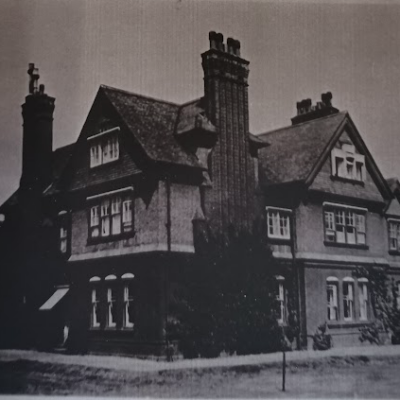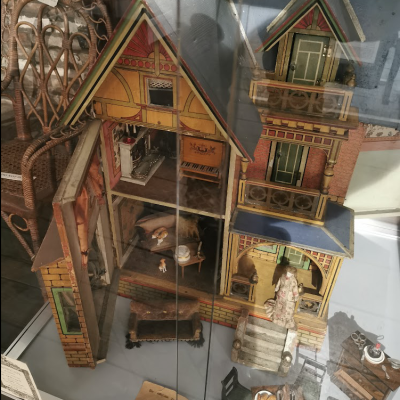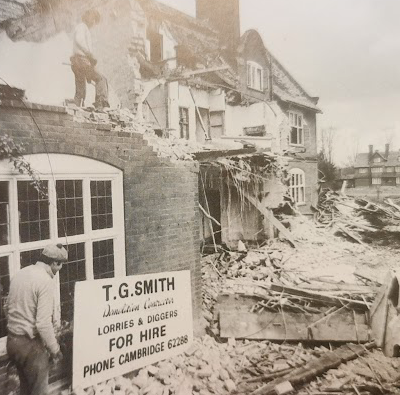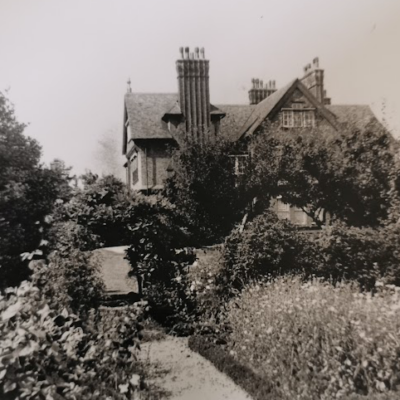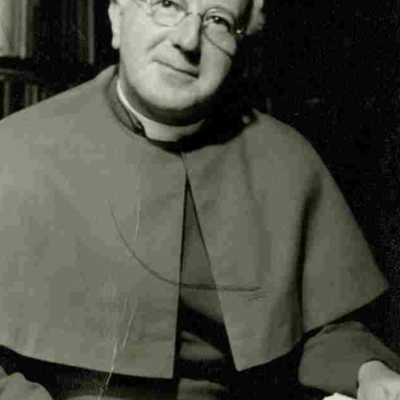Search by topic
- archaeology
- Building of Local Interest
- charity
- church
- crime
- dressmaker
- fire
- Great Eastern Railway
- Listed building
- Mapping Relief
- medieval
- oral history
- poverty
- Public House
- Rattee & Kett
- Religious House
- Roman
- scholar
- school
- Then and Now
- tudor
- women
- work
- world war one
- world war two
Search by text
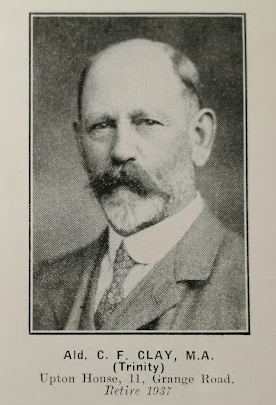 1936, Blue Book
1936, Blue Book11 Grange Road, Upton House
History of 11 Grange Road
Upton House on Grange Road was built in 1912 for Mrs S. M. Blanche, the sister of a Cambridge don, to the designs of Algernon Winter Rose (1885-1918) who also designed the large garden. A. Winter Rose was educated at Bedford Modern School and articled to Messrs Usher and Antony of Bedford where his gifted draughtsmanship and skills in design, particularly for gardens, were noted. He was engaged by W. Beddow Rees of Cardiff as an assistant architect designing chapels in Wales, and after a spell working in London with the Office of Works and then with W. D. Caröe, he turned to garden design. In 1908 he was awarded the AA Travelling Scholarship, and decided to travel in England, particularly in Norfolk and Cambridgeshire, concentrating on ‘the memorable work of other days’ rather than ‘modern products’. He wished to ‘restore to domestic architecture the dignity and charm of the past, whilst introducing such modifications of plan and design as were necessary to meet the needs of the present day.’ His subsequent commissions include Cloister Garth in Purley, Surrey; The House in Chatteris in the Isle of Ely; additions to Millfield in Brentwood, Essex; and the reconstruction of the C18 Grade II-listed Morton House in Old Hatfield, which is the only listed building associated with his name. Several of his garden designs were featured by Gertrude Jekyll in Arts and Crafts Gardens (1912), such as Morton House and Goodrich House, both in Hatfield. At the outbreak of the First World War, Winter Rose obtained a commission in the Yeomanry and was sent to France where he won the MC. He survived the war but died of influenza on 29 October 1918. He had been tipped by The Builder (November 1912) as a successor to Richard Norman Shaw, and so what would undoubtedly have been an illustrious career was regrettably cut short.
1913
Mrs Blanch
1962
R Weeden Butler [honorary surgeon at Addenbrookes]
Contribute
Do you have any information about the people or places in this article? If so, then please let us know using the Contact page or by emailing capturingcambridge@
License
This work is licensed under CC BY-NC-SA 4.0






